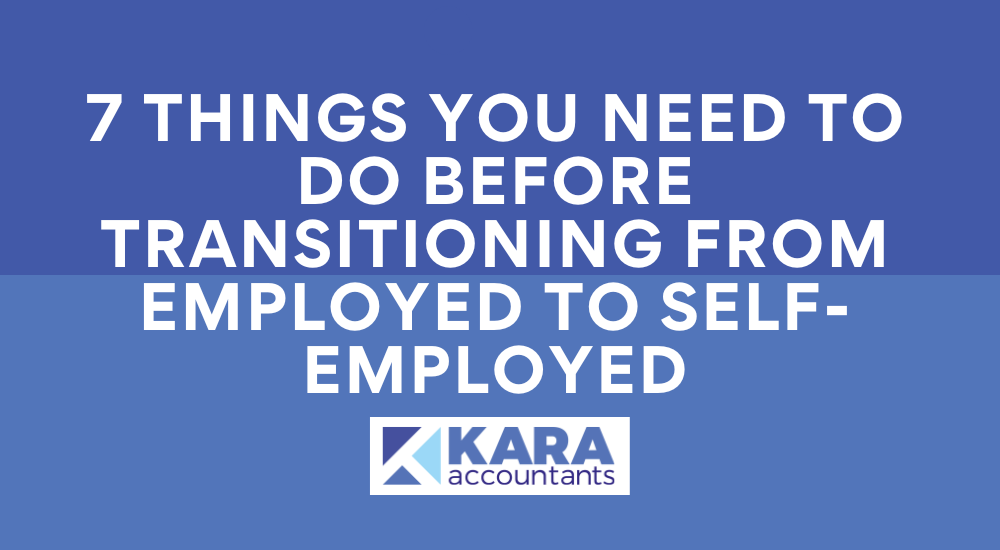
7 Things You Need To Do Before Transitioning From Employed To Self-Employed
Do you have dreams and thoughts of starting your own business but aren’t sure of what steps to take to get there? Before leaping straight into a business, it’s important that you prepare and check a couple of things first. Here’s a checklist of some of the most important things you’ll need to consider before plunging into the deep end.
1. Check Your Contract
One of the most vital things to do is to check your contact. Make sure that you are allowed to open a business whilst employed. Some companies state in the contract that you’re not allowed to open or work for another business while employed. If it is allowed, great. But is your business isn’t in competition with the company you work for? That may be another clause you’ll need to check. If you breach your contract, you could face damaging fines and even legal teams. By speaking to your boss, they may even help you by increasing your support network while you begin.
2. Have A Business Plan
By planning out your business properly, there’s a higher chance of success. Plan the steps you need to take to transition from employed to self-employed and how/what you would like to achieve in the year ahead. When it comes to budgeting or putting a financial plan in place, Kara Accountants can help by giving your professional advice and guidance so that you are more likely to get support from banks and/or investors.
3. Make Financial Provisions
While you’re still employed, it’s best to save and gather as much funding as you can. Finding clients can always be stressful and trying to keep the money coming in can be daunting. By having savings and some money behind you, you won’t have to worry about when there’s a dip in income.
4. Plan For The Future
When you’re an employee, you’ll be set up with a workplace pension. However, when you leap into self-employment, you’ll have to start your own pension in order to prepare for your retirement and have money for the future. Have a think about insurance for your equipment too. If you rely on your laptop and it breaks – you’ll need a plan in place to get a new one fast.
5. Find Clients
Having clients is one of the most important factors of owning a business. Having a loyal customer base will take time and requires a lot of relationship building. Building a network around potential customers is a great way to start. You can use Linked In for this as it’s a great resource and enables you to network with others within the industry. Gather information and make yourself known in the industry.
6. Keep Good Records
When owning a business, there’s a legal obligation to keep full and accurate records of business income and expenditure. Not only is this a good work practice but it will keep you on top of things, as well as help with submitting tax returns at the end of the year. By using our online accounting software, bookkeeping is made simple and easy.
7. Offset Your Income
Offsetting is the terminology used in the taxing world. It is simply the process of balancing the money that you are owed with the money that you owe. An example of this is HMRC letting you offset the taxes you owe them with tax rebates they owe you. If you’re planning to start your own business while employed, it’s a good idea to start as a sole trader as it will allow you to offset some of your expenses against your income. You may even find that you’re due a tax refund, especially if you have a lot of expenses to claim at the beginning. On the other hand, if you want to go bigger, you may choose to set up a limited company, which comes with its own benefits. If you’re not sure what to do, seek professional advice by contacting us. It’s important to start with the correct business setup so you don’t have to change it further down the line.
At Kara Accountants, we get to know your business and support/guide you wherever you need it. Contact us today for the help you need.

This Post Has 0 Comments